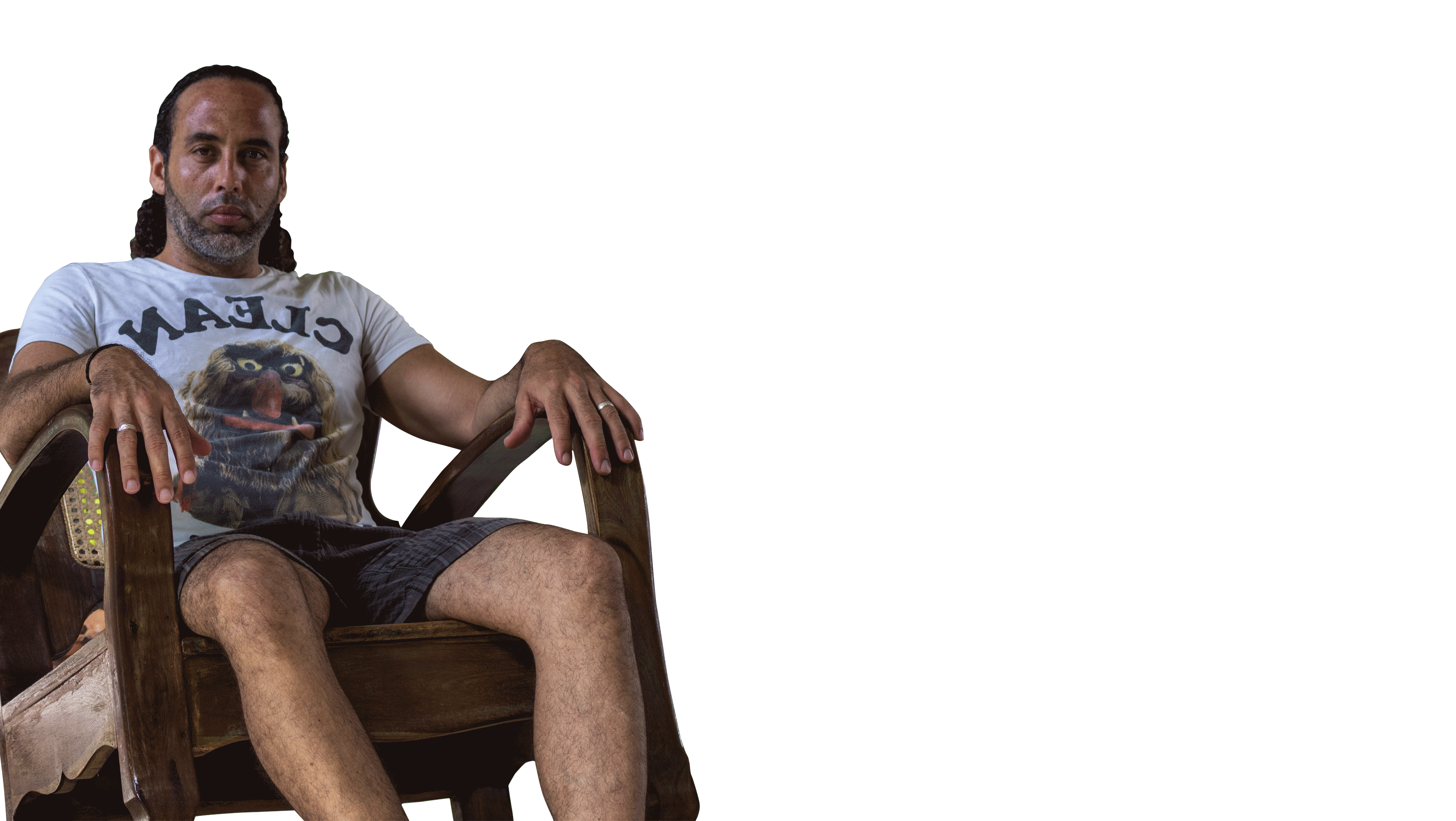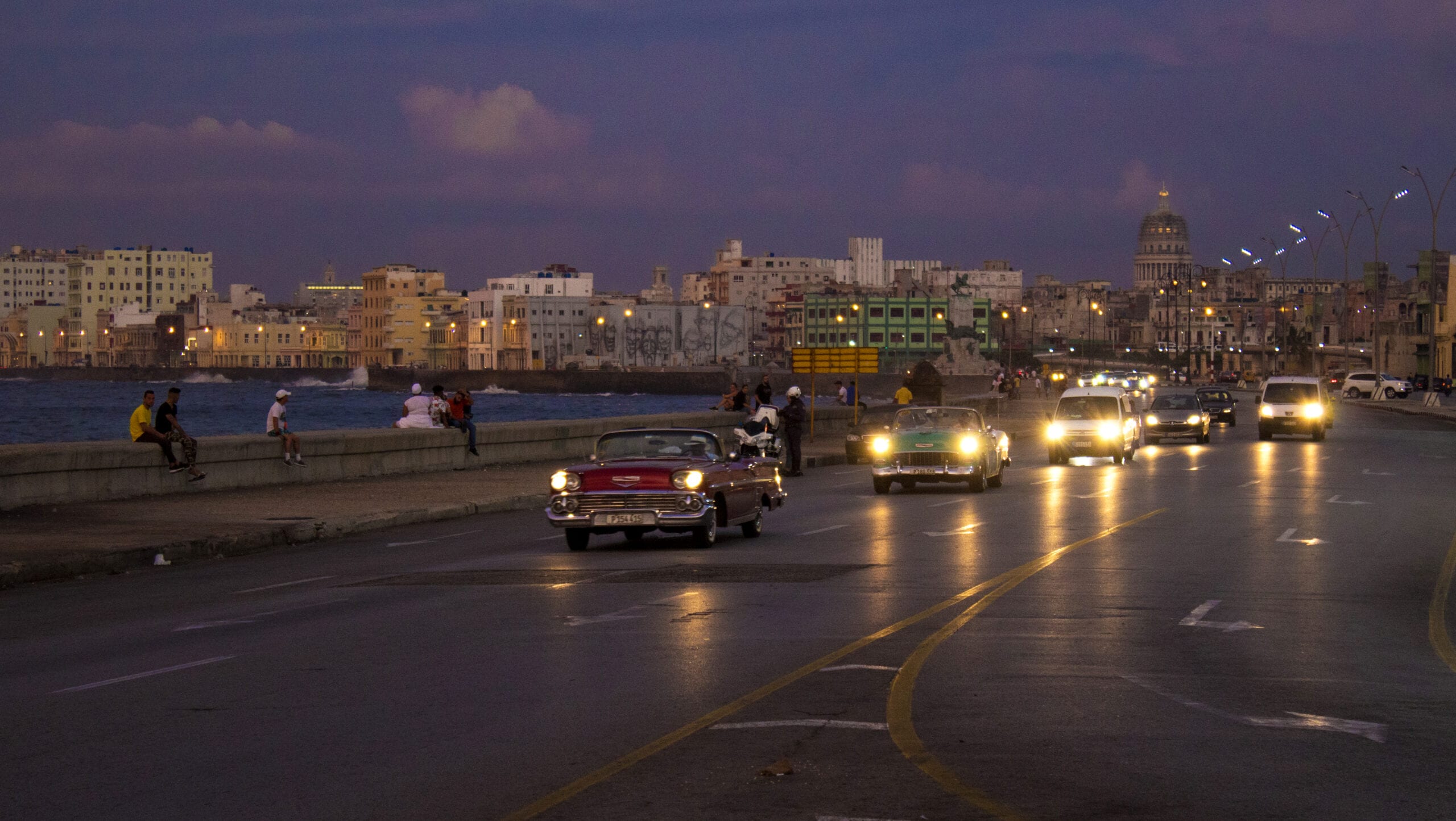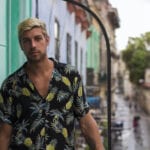For queer couples in Cuba, moments alone are few and far between, lived out in stolen away places. Rafael and Joaquín know this intimately: The pair, together for seven years, have long found creative ways of being alone in a country where their love cannot be experienced at home around their families. Friends occasionally let them crash for the night so that they can sleep next to one another. Otherwise, they’ll meet in a nearby forest after work, hopping a fence to spend time alone. “This wood was our haven. There was no other way to be together,” Joaquín says. “Society forces us to hide.” For his partner, Rafael, this is the hardest part of being gay in Cuba: the possibility of never being able to live openly together as a couple.
From a legal perspective, Cuba appears to be a leading example of LGBTQ progress in the Caribbean. The Cuban government has moved to grant rights and protections to the community, decriminalizing gay sex in 1979 and offering gender-affirming surgeries free of charge since 2008. The country made headlines in 2018 for moving closer to legalizing same-sex marriage, initially changing the governmental definition in the Constitution from a “union between one man and one woman” to a union between “two people with absolutely equal rights and obligations.” (The proposed change was soon dropped due to public pressure.) Other changes prohibit all discrimination on the basis of gender, gender identity and sexual orientation. In May 2019 the government announced that the Union of Jurists of Cuba is working on a new Family Code to address same-sex marriage.
It hasn’t always been this way. The Cuban Revolution, led by Fidel Castro between 1953 and 1959, brought about great suffering for queer Cubans. After Castro assumed military and political control over the country, queer people were imprisoned in concentration camps in the 1960s without charge or trial; they were confined to forced labour. Homophobia was institutionalized until more tolerant policies emerged in the late 1970s thanks to the People’s Supreme Court.
But homophobia remains pervasive. Behind all of the LGBTQ progress in Cuba is the daily stigma and discrimination faced by queer and trans people in the country.
Rafael, 35, and Joaquín, 42, grew up in the same neighbourhood on the outskirts of Havana, where they met seven years ago. (Their names have been changed to protect their privacy.) They believe life as gay men is not as bad as it used to be—they no longer have to fear being imprisoned, for instance, because of their sexual orientation. But they remain realistic about the challenges facing their community in a society that is still quite hostile toward them. A traditional sense of family, widespread discrimination and straightness-as-the-default institutionally stand in the way of full acceptance of Cuban LGBTQ individuals and couples.
The social stigma affecting queer people starts early in life—so much so that many remain closeted for fear of reprisals. Joaquín entered his first gay relationship when he was 33 years old. “It was very late,” he says. His youth was a particularly lonely one—he rarely went out with friends because he worried people might find out he was gay. “I stayed home doing nothing while everyone else was enjoying life. I was hiding. I completely missed out on my youth, and I will never get that time back.” At home, meanwhile, Joaquín’s father pressured him to find a girlfriend. “I was scared to tell him the truth, scared that he would hate me. I was at a point where I didn’t even want to live anymore.” After Joaquín began his first relationship with a man, it became too much for him to bear and he decided to tell his parents he was gay. “I started crying and the truth came out. From that moment on, I have been feeling like a new person,” he says. “My dad told me, ‘If I loved you before, I love you even more now.’ We have had an amazing relationship since.”
While Rafael’s family did not accept him at first, they eventually came around. He and Joaquín feel privileged about their situation. In Cuba, family remains at the centre of social life. “Lots of gay people go through very unpleasant and unfair situations with their families,” Joaquín says. “Homosexuality is seen as a flaw—the worst one,” adds Rafael.
Joaquín, left, and Rafael, right, photographed in Havana. Credit: Jonathan Bertucchi/Xtra; Francesca Roh/Xtra
Because Cuba’s housing market is virtually non-existent and apartments for rent are increasingly rare to find, it is near-impossible to move out from a non-accepting family home, or to move in with a partner. Traditionally, different generations of a family live under the same roof—when people are in a relationship, they move in with one of the partners’ families. Depending on their family’s level of tolerance, it can be impossible for some queer couples to ever live together; even when it is possible, it can come with special treatment. Joaquín lives in his family’s house, while Rafael stays at a friend’s place in central Havana. There, the pair has managed to find refuge. “In [my] house, you cannot display affection. You need to behave as friends,” Joaquín says. “Showing affection is seen as highly disrespectful. I could never kiss Rafael in front of my mom.”
Education in Cuba also remains traditional in its teaching of gender roles. The traditional definition of masculinity implies that a man needs to be strong and dominant, to flirt a lot and not show any femininity like softness or emotion. This can be toxic for queer men, imposing a social norm that is distressing for some like Joaquín who desire to comply and be accepted. This discrimination extends to all spheres of society—from school to work.
There has been some social progress: In Joaquín and Rafael’s experience, Cubans are slowly but increasingly becoming more tolerant of LGBTQ people. Telenovelas are playing a role in featuring queer issues: In 2016, for instance, Latidos Compartidos, a Cuban telenovela, featured a non-caricatural gay couple navigating homophobia and family’s acceptance. The Cuban National Center for Sex Education, led by the daughter of ex-president Raúl Castro and notable LGBTQ activist Mariela Castro, has been working for the acceptance of Cuba’s queer community and their rights. The centre has been the driving force behind the community’s political gains; it is responsible for legal wins for trans folks, including free gender-affirming surgeries. It is also active in creating governmental education campaigns for schools that unpack LGBTQ issues and myths. A few queer bars have recently opened, as well as Mi Cayito beach, a gay beach in Habana del Este—welcome spots for same-sex socialization in a country with limited access to the internet and no queer apps like Grindr at the time of my visit in August.
But things are never simple in Cuba. A few months ago, the constitutional debate about gay marriage showed Rafael how much people still oppose their love. The government walked back on its decision to change the definition of marriage in the constitution due to large public opposition during consultations. “We realized that the majority of the population still stands against us. It shocked me,” Rafael says. Around this time, he says, a pamphlet claiming that a “normal family” consists of a man and a woman was posted to the door of his apartment building. Despite anti-discrimination laws, Joaquín and Rafael say it isn’t rare for police to harass same-sex couples.
Two men kissing at Mi Cayito beach on August 25, 2019 in La Habana del Este. The gay beach is located 25 kilometres east of Havana. It is one of the few places in the country where LGBTQ people can be themselves in public. Credit: Jonathan Bertucchi/Xtra
Last year proved to be a difficult year for LGBTQ Cubans. In May 2019, the government cancelled Havana’s Pride parade, traditionally held on the International Day Against Homophobia, citing “international and regional tensions.” “It’s said that the government could have been afraid of risks for the parade to be a platform of protest,” Rafael says. “But this is not true, people just wanted the right to march and to celebrate their identity.” About 100 people decided to take to the streets anyway; they were met by police brutality and arrests.
Cuba’s LGBTQ community is now at a crossroads. The homophobic legacy of the Cuban Revolution—which silenced the community and forced queer people to repress their identities for decades—is fading away; but things can change quickly in a country with a single-party rule at the centre of any social change. Crippling U.S. sanctions have hit the country hard, renewing a state of crisis and increasing economic instability that can lead to tighter governmental grip on already small spaces of freedom. The queer community is undoubtedly going to suffer the consequences—the cancellation of Pride might only be the start.
Rafael and Joaquín have considered leaving Cuba, but doing so is not easy. They dream of moving to Canada to be able to live in a more accepting and free environment—but Rafael was denied a visa three times.
No matter what the future holds, Joaquín and Rafael are both proud of how far they’ve come in accepting themselves and standing-up against a society that often tried to bring them down. “I love being gay. I am happy because it made me stronger. Having to face discrimination has made me proud of who I am,” Rafael says. “The fear is gone and I feel like I am my own hero.”


 Why you can trust Xtra
Why you can trust Xtra


